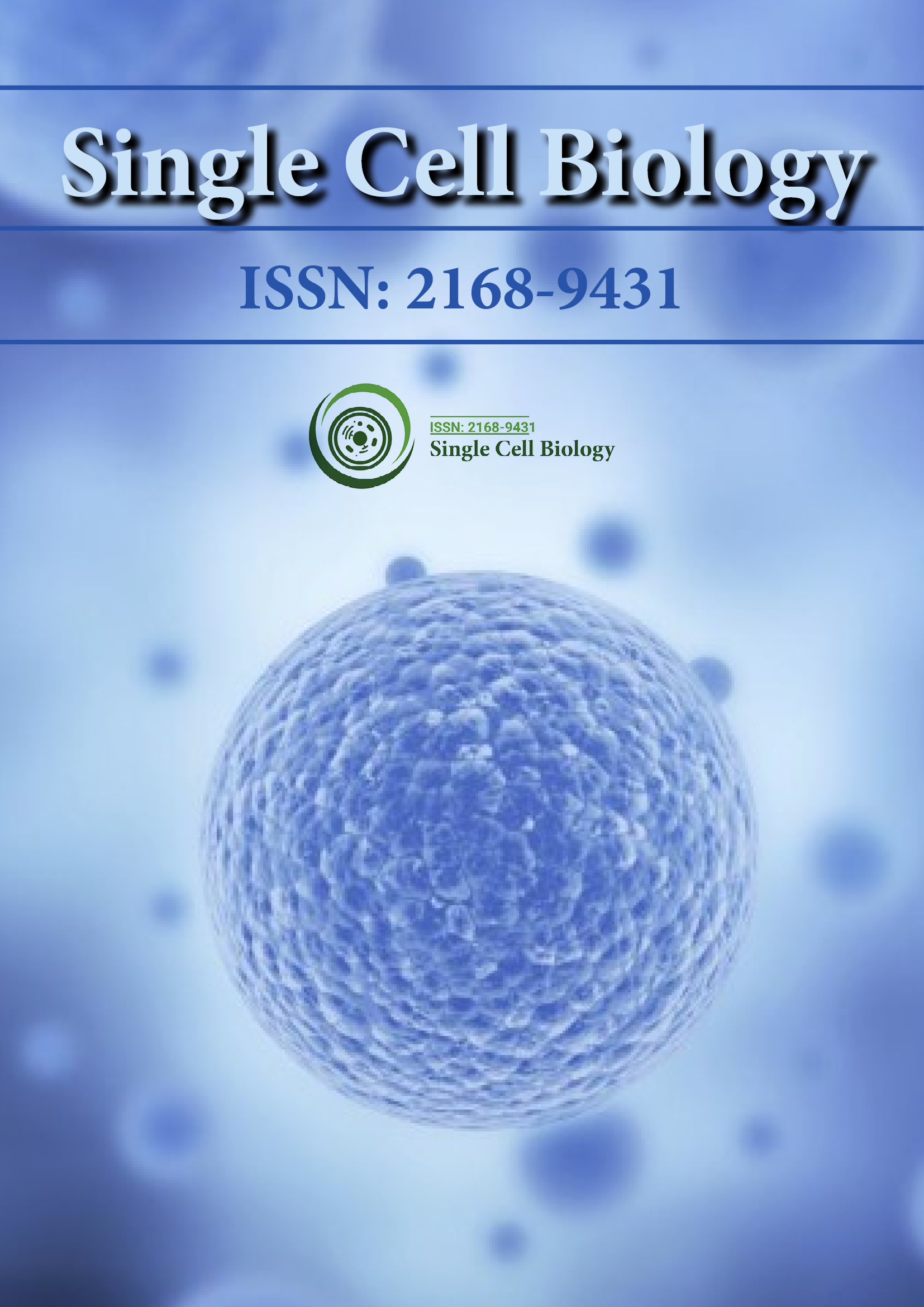Indexed In
- ResearchBible
- CiteFactor
- RefSeek
- Hamdard University
- EBSCO A-Z
- Publons
- Geneva Foundation for Medical Education and Research
- Euro Pub
- Google Scholar
Useful Links
Share This Page
Journal Flyer

Open Access Journals
- Agri and Aquaculture
- Biochemistry
- Bioinformatics & Systems Biology
- Business & Management
- Chemistry
- Clinical Sciences
- Engineering
- Food & Nutrition
- General Science
- Genetics & Molecular Biology
- Immunology & Microbiology
- Medical Sciences
- Neuroscience & Psychology
- Nursing & Health Care
- Pharmaceutical Sciences
Perspective - (2023) Volume 12, Issue 1
Assessment of Single-Cell Microarray in Decidual Stromal Cells
Dalton Alves*Received: 27-Feb-2023, Manuscript No. SCPM-23-20280; Editor assigned: 02-Mar-2023, Pre QC No. SCPM-23-20280(PQ); Reviewed: 17-Mar-2023, QC No. SCPM-23-20280; Revised: 22-Mar-2023, Manuscript No. SCPM-23-20280(R); Published: 29-Mar-2023, DOI: 10.35248/2168-9431.23.12.043
About the Study
To characterize the microarray profiles of DSCs before and after labour onset, they used single-cell RNA sequencing. DSCs were divided into five functional subgroups based on their transcriptomics profiles. Decidual tissue is essential for embryogenesis and delivery. A most essential factor of labour is the first stages of delivery, which include uterine activation. New data indicates that uterine smooth muscle activation is caused by physiological changes caused by labour onset. As a consequence, adjustments in decidual tissue near the endometrium may contribute to early uterine activation. Multiple inflammatory mediators, such as prostanoids and immune cells, are released at the prenatal interface during the early stages of labour. Given the multicomponent nature of decidual tissue, the inflammatory response of the decidua will inevitably involve a variety of cell types, including decidual T cells and natural killer cells. These immune cell types are found in tissues other than the decidua, aside from Decidual Stromal Cells (DSCs).
DSCs are deduced from epithelia, and come to the right place during embryo implantation results in the formation of this distinct cell type in pregnancy. DSCs obtain secretory properties after decasualization as well as have a significant function in progesterone-mediated pregnancy maintenance. DSCs change as a result of decasualization but instead progesterone withdrawal after labour. Characterization of DSC changes during delivering may provide additional insight into the decidua's unique role in parturition. Despite the fact that DSCs play an important role in progesterone metabolism, it is unclear whether DSCs contribute to pregnancy termination. The decidua's heterogeneity complicates defining its role in parturition even more. The decidua and placenta are highly heterogeneous tissues, according to research on women in the early stages of pregnancy. Heterogeneous throughout the perinatal period until delivery. Users were using single-cell RNA sequencing to characterize the heterogeneity of DSCs and elucidate their role in delivery.
All DSC were enhanced in activator protein pathway-related genes after labour. This pathway has previously been demonstrated to be active in uterine smooth muscle cells, implying that DSCs and uterine smooth muscle cells share functions on the carer’s side of the maternal-fetal interface. The up regulation of genes related to the reaction to lipopolysaccharides in DSC suggested that labour may be viewed as an inflammation in these DSC subgroups. Hormone metabolism genes were up regulated in DSC. During delivery, hormonal changes can be observed, including progesterone withdrawal and changes in estrogen levels. As a result of these findings, certain DSC subsets may start regulating progesterone withdrawal and estrogen levels. To fully assess the geneexpression profiles and functional areas of puerperal DSCs, they also looked at the genes that were dysregulated in these subsets after labour. Only DSCs were discovered to also be involved in oxygen level regulation. While oxygen concentration can influence foetal membrane biology prior to delivery, reduced oxygen tiers after delivery have no effect.
Concentrated on the decidua in this analysis and discovered that only DSC was responsible for the control of oxygen levels. Furthermore, DSCs were found to be involved in ATP synthesis. Following the onset of labour, myocytes smooth muscle cells near DSCs produce ATP and lactic acid, which are both believed to have potent anti-inflammatory effects. Draw attention to the critical role that inflammatory responses play in the beginning of labour in some DSC subsets.
Citation: Alves D (2023) Assessment of Single-Cell Microarray in Decidua Stromal Cells. Single Cell Biol. 12:043.
Copyright: © 2023 Alves D. This is an open-access article distributed under the terms of the Creative Commons Attribution License, which permits unrestricted use, distribution, and reproduction in any medium, provided the original author and source are credited.
